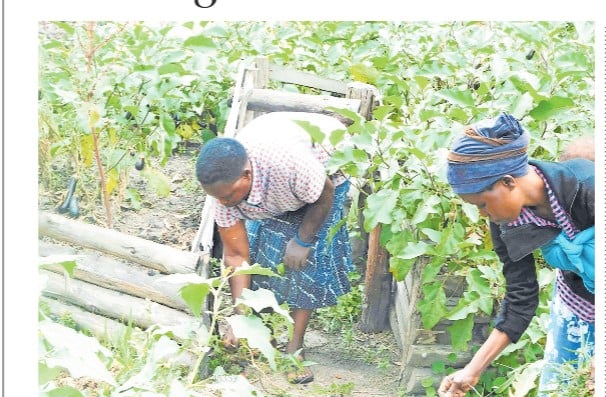Prime
Things you should know before buying land

Having an access road is one of the important factors to consider before buying land in a particular area.
Photo by Alex Esagala
Everyone has a dream to own a piece of land either from an individual or real estate but there are some things one needs to consider before making any contract
Even if a piece of land seems to be perfect, there are a lot you should ask before you take out that land.
Muhammed Kizito, a real estate Manager, says there is so much you need to know about a property that a seller might not tell you right away.
Rights and entitlements
Kizito says rights are the benefits you get from a property as its owner and these include road access, mineral and development rights basing on how you want to utilise your land.
“It is advisable to ask for the rights and titles before signing any agreement because a title is a bundle of rights in a piece of property and since many titles are passed down from owner to owner, you must be very vigilant to have the right one,” Kizito says.
He adds that you must have access to necessities such as electricity on your property. It’s very common for properties to have large dead zones with no electricity because you did not ask about it before.
”Just because the property has access to a power line does not mean you can use it,” Kizito says.
Environmental hazards
There are environmental harzards you need to be aware of. Kizito says some clients think that it is very easy to spot any deadly environmental hazards just by walking around a property. However, many environmental hazards cannot be seen by the naked eye.
“Environmental hazards can range from toxic runoff in the water, leaking underground pipes and contaminated soil for those who want to start farming,” Kizito says.
He added that having an environmental hazard on your property can be bad for your land at best, and put you at risk for serious health issues at worst. “Remember, the seller is not obligated under law to volunteer any information about environmental issues unless you ask about it,” Kizito says.
He adds that if you have interest in farming, you have to know if the land can absorb water from a septic system. And if the land has not been tested, it is important to hire a soil scientist to study the landscape, types of soil, and the soil’s ability to absorb water.
Access to the property
Kizito explains that there are two main ways to access a property and these include a front road, which is a local road that provides access to private properties and a deeded road which is a two way agreement between the neighbours.
“If your property is accessed by a deeded access road, you need to find out as soon as possible what the agreement is and if necessary, sit down with your neighbour to see if anything about the deeded access has changed,” Kizito say.
He adds that this comes along with the boundaries of the property if they are clearly marked, this is one of the most important questions to ask. If you plant on land that is not yours, even if you did not know about it, you could face lawsuits. “If there is any uncertainty about the boundaries of your property, ask if a survey of the land has been done recently. A recent survey will be able to show you clear and up to date boundaries on your property,” Kizito says.
You have to know the property’s highest and best use. Considering the highest and best use of the property is a must before making a purchase because it can impact the value of the land. “There many reasons why people buy land and before making your agreement make sure you clarify why you need that land either for agriculture or constructing commercial house because the use of land differs,” Kizito says .
He adds that the water drainage can impact on the land use, especially farmers because some land dry quickly, while others stay wet most of the year. “If you do not know about the drainage and plant the wrong crop, it could drown or dry up your produce. Also, poor drainage around buildings can cause permanent damage and mold especially those who buy in slum areas,” Kizito says.
Real estates
Frank Mugalu, a property manager, says those who are buying land from real estates should be very observant because once the agreement is made, it’s very hard to make amendments.
Mugalu says you have to know what is going on with the other properties near you. It is a good idea to be in the know of what is happening on the land near you. “Are properties near you in the process of development? Have there been environmental issues or hazards with your neighbours? Then this will help you get an idea of what to expect from your own land,” Mugalu says.
He adds that in some cases it is very inconvenient to have a residential in an industrial area or near a school, there might be a lot of noise.




